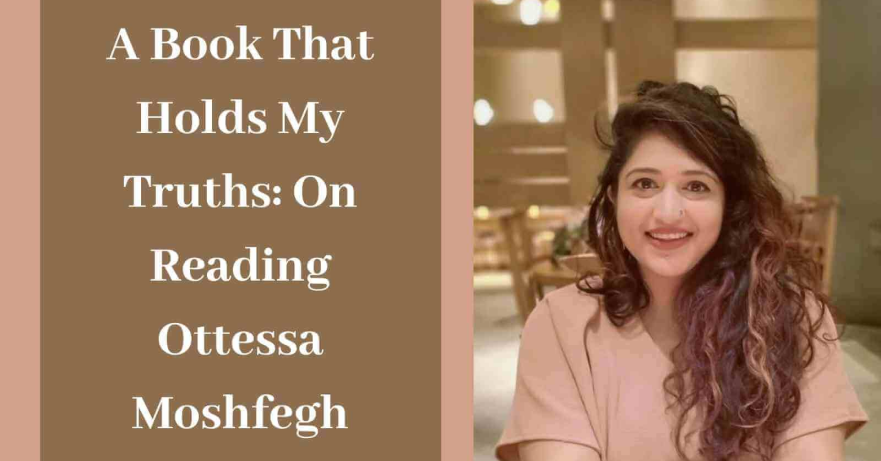‘Rajni, look,’ I told my best friend in a low, desperate whisper, ‘I know this seems crazy to you, and I’m grateful to you for looking out for me, but I love him. And I know that Bombay will make him realize that he feels the same way about me.’
She looked at me with complete exasperation. ‘Why?’ she demanded, picking up the contracts Goldenblatt had sent over and shaking them emphatically. ‘What is so magical about Bombay?’
Perhaps it was time to show her. I smiled as I pulled out the diary. Her irreverence wasn’t going to last a minute longer.
***
Personal Diary of Gayatri Khurana, Indian
Administrative Service (IAS) officer, Delhi Division.
5 January 1960 Bombay
I was sure I’d fall in love here, but I didn’t think it would be so soon.
Alighting on Bombay’s railway platform was like arriving at a party. All the passengers in first class shed their woollen sweaters as soon as they stepped out to reveal smart suits and silk saris. It felt like we were all shaking off the dreary Delhi winter. The knotty knits were no longer needed here in this cool, cool city. Porters came up to us immediately, asking permission to string flower garlands around our necks like party favours. I paid one a few annas and wound it around my braid, breathing in the fresh scent of jasmine, wishing I could bottle it forever.
‘Shall we call a taxi?’ Birdy asked as he picked up my bags.
I nodded, forcing a quick, tight smile. I really didn’t see why Yashwant Saab had to send him along with me. Birdy was a fine friend, and he had been a compassionate mentor, but I had hoped to have this one adventure alone, to be a traveller among travellers. The passengers in my cabin were lovely and had been quite happy to chat about their favourite discos in Bombay, but they fell silent when Birdy sat down opposite me and glared at anyone who tried to make conversation. Apparently, Bauji had given him strict instructions to ensure that I don’t get duped by strangers in Bombay. Well, so far nobody had tried to snatch my chain, nor had they tried to steal my tiffin of parathas. Birdy said it was because he was around and keeping an eye on things, but I failed to see how a string bean like him could scare off thieves and suchlike.
Fortunately, once we reached our accommodation, I finally got rid of Birdy.
The Central Telegraph Office has allotted me a nice and airy little flat on Peddar Road. I have it all to myself since there are no other women in the Bombay IAS division to share it with. Although it is flattering to be the first of my kind here, I hope more women qualify for Bombay’s state jobs soon. I would like to have a roommate, one to share grocery lists and reading recommendations with.
Well, so far nobody had tried to snatch my chain, nor had they tried to steal my tiffin of parathas.
I didn’t have time to do more than stare at my little sliver of the sea from the balcony before Birdy was back again. This time, however, he had a reason.
‘You’re wanted at the headquarters,’ he said, ‘The chief of the States Reorganization Committee has asked to see you.’
I smiled, revelling in my self-importance. ‘We can’t keep him waiting then, can we?’ I sang and ran downstairs.
A white Fiat was waiting to take us to the Central Telegraph Office at Kala Ghoda.
I despise the British for many reasons, but I found myself grinning with gratitude when the fantastic Victorian building rose from behind a row of Gulmohar trees. I couldn’t believe that this Cathedral-like structure was going to be my office for the next six months.
‘Ah! Our cartographer,’ Mr Sinha said as soon as I walked into the large wood- panelled room filled with men and their moustaches. All of them were uniformed in warm three-piece suits despite the oppressive heat of the city.
‘Officer Gayatri Khurana, reporting, sir,’ I said, shaking his hand.
‘The floor is all yours,’ he said and moved away, allowing me to preside over the large wooden table. A large map of the Bombay Presidency was spread out on it, patiently awaiting dissection. I promised to be gentle.
‘Gentlemen,’ I began, tucking the pallu of my sari away so it didn’t sway about as I spoke. ‘We’re here to reorganize the boundaries of the great state of Bombay. To divide it into Gujarat and Maharashtra, according to the languages spoken in each part.’
There was a slight murmur to my left, from the Gujarati field officers, I realized, who hated losing Bombay city to the new state of Maharashtra. They didn’t look happy.
I leaned slightly towards them as I spoke. ‘It may seem like a grievous task to you, but I ask you to remember the great man of Gujarat, the esteemed Sardar Vallabhbhai Patel who made it his life’s mission to unify our states into a robust, independent India.’
The murmurs stopped.
I could tell from the respectful expression in their eyes that the tremendous form of Sardar Patel had conjured in their minds. Now, not I, but their deceased idol would command their support.
Mr Sinha smirked. He knew what I was doing.
‘Sardar Patel believed that the Indian states had to work together to make our country powerful again. As officers of the IAS, it is up to us to continue his legacy—to create two strong states with rich economies, instead of one Bombay in which everyone is fighting for space and opportunity.’
The men on the left seemed less suspicious now. I continued, my voice soaring with conviction. ‘Let us not mourn the division of Bombay. Instead, let’s celebrate the creation of Gujarat and Maharashtra, which will give
Gujarati speakers and Marathi speakers a government that responds to them in their own language.’
The men weren’t smiling yet, but they were not frowning either. The tension was about to break, I was sure of it. Birdy’s eyes were twinkling at the back, proud already.
‘I am confident, given the calibre of the men in this room—’
‘That’s a fine speech,’ a low British accent drawled through the room, cutting me off. I turned to see a tall young man at the door, his handsome face furrowed by a frown. ‘But are you sure the boundaries you have drawn up to divide Bombay into Gujarat and Maharashtra will actually divide it into Gujarati-speaking and Marathi- speaking parts?’
The men fell silent and turned to the newcomer. I glared at him. How dare he interrupt the lead officer without permission? I was sure that if I was in a suit, and not in a sari, he wouldn’t have dared to interrupt.
‘And you are?’
‘A lawyer who is wondering if all the people you’re about to shove into Gujarat actually speak Gujarati.’
Who was this man who was turning down his aquiline nose at my maps and hours of research? I paused for a moment, wondering if I should ask him to wait till the question hour had begun. But the men were all looking at him, at his Oxford suit and polished shoes, in awe. I had to answer immediately or risk appearing weak.
I was sure that if I was in a suit, and not in a sari, he wouldn’t have dared to interrupt.
‘My proposals are based on language and demographic data from the national census,’ I replied crisply.
He laughed. ‘The national census was done by the British in 1930.’
I flinched.
‘Aside from the three decades that have passed since the data collection, are you really going to trust the British’s understanding of the difference between Gujarati- and Marathi-speaking people? You trust English officers to know the difference between “su chhe” and “kashe aahe”?’ Low chuckles emanated from the left of the room. The Gujarati officers clearly loved him. The rest of the officers were looking at me dubiously,
wondering if I was capable of leading this assignment. I wanted to say something cutting to the young lawyer, to chastise him for his arrogance in speaking out of turn with the lead officer—as I had seen Birdy do so many times—but I didn’t think that was the solution.
He did have a point. My data was from the wrong sources. And I was absolutely wrong-footed. Fortunately for me, Mr Sinha stood up just then.
‘Team, this is Jairaj Anand,’ he said, shaking hands with the young man, as though nothing dramatic just happened. ‘He’s the lawyer appointed by the state to constitutionally supervise the reorganization of the Bombay Presidency.’
Mr Sinha then gave me the briefest of nods before turning to Jairaj Anand. ‘Jai, you’re absolutely right. We shouldn’t be working based on the information collected by the British about our citizens.’
I followed Mr Sinha’s lead and shook hands with Mr Anand myself. He grinned in amusement as I snatched my hand back. I pretended not to notice. I straightened my sari and turned to the officers.
‘I will issue a new census collection,’ I said in my most diplomatic voice, even though I was seething inwardly at Jairaj’s sarcasm, at his unbridled arrogance.
‘Good,’ Jairaj said and turned his back to me.
He grinned in amusement as I snatched my hand back. I pretended not to notice.
It is not a defeat, I reminded myself as I folded up the map, but a more thorough plan to ensure the welfare of our citizens. It is not a defeat. It is not.
But Jairaj walked around the room and made jokes with the officers, as though it had indeed been his triumph.
***
The party tonight was delightful enough for me to forget the vexations of the day. Mr Sinha had organized a welcome dinner for our team in the assembly hall of Bombay University. Birdy and I were having a grand time chatting with the officers and their wives. All of whom were sophisticated women with discreet diamond studs in their ears and finely embroidered kurtas. I was glad I wore the lightly crushed gold sari Bauji had given me for my last birthday. If I am to survive in this stylish city, I will have to go shopping at some point.
But what I lacked in ornamentation, I tried to make up for in conversation.
Excerpted with permission from The Naani Diaries, Riva Razdan
Publishing/Harper Collins India (January 2023)
You can buy your copy here.

Riva Razdan is an author based in Mumbai. Her work has been featured in The Hindu Business Line, Grazia India and The Telegraph. Her debut novel, Arzu, was published in February 2021.










